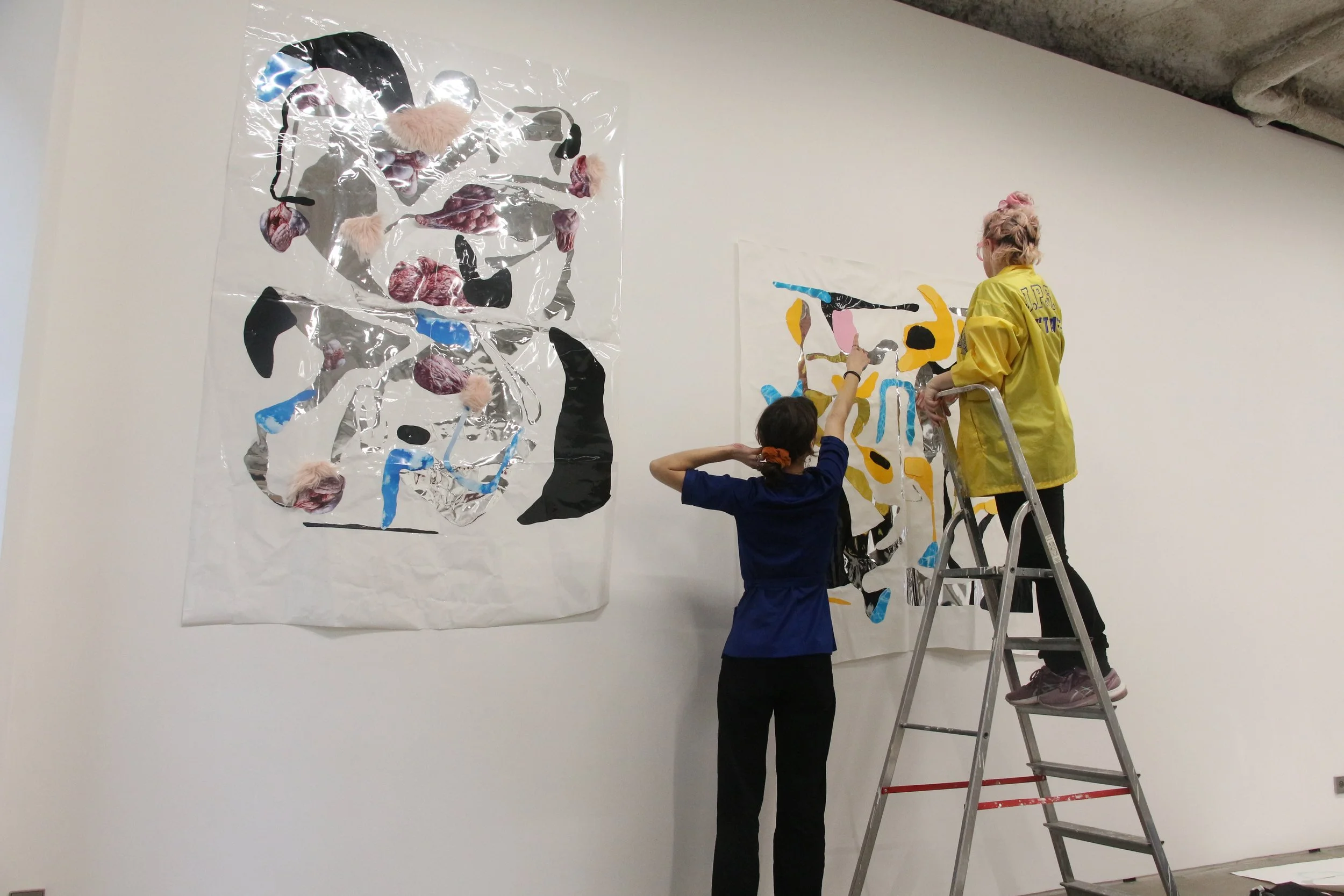CORE EXHIBITION → PERSONAL STORIES → DITTE’S STORY
Ditte
Finland
Ditte was unexpectedly diagnosed with endometriosis at 19 during an emergency visit for suspected appendicitis. Navigating pain, misunderstandings, and self-research, she developed strategies to manage her condition and found strength in community support.
Her story
How did you get your diagnosis?
I was 19, I think, when I went to the emergency room with severe stomach pains. They weren’t sure what was wrong and ran some blood tests, which showed slightly elevated infection levels. They suspected my appendix was inflamed and told me to come back for a follow-up test. My CRP levels were still high, so they rushed me into surgery.
When I woke up, I asked, "Was that what it was?" and they said, "No, you have endometriosis." I was like, "What is that?" It came completely out of the blue. I hadn’t even been trying to get a diagnosis for my symptoms before that.
I’d had pain ever since I got my period, basically, so it wasn’t anything new to me. For me, it just felt normal. I didn’t even question whether it wasn’t normal because, well, my mom had been taught that pain was just part of it. I remember one principal at school once told me, "Hey, it’s not normal to be in that much pain." I was sitting there crying because it hurt so much, and I said, "Yeah, well, it’s just my period." You know, I never thought it could be something else. I hadn’t even heard of endometriosis.
So, in a way, I got my diagnosis easily, but I’d already been living with the pain for a long time. When I talked to the doctor on the ward, I asked, "Is this something I need to do something about?" They said, "If it becomes a recurring problem, you might need to seek care at the health centre." That was it. No one explained anything to me. I had to Google it. Then my mom spoke to our neighbour, who also has endometriosis. She told us, "No, you shouldn’t just wait and see. You should go to the doctor right away and figure out what kind of care you can get for this." But at the time, I wasn’t referred anywhere. That was basically the care I received.
What symptoms do you have?
I’ve definitely connected the diagnosis to the really severe pain I’ve had, especially around my period—both before and after. And then, well, I get what I call stabbing pains in the rectal area and bloating in my stomach. Those have been the main pains. The pain also radiates down into my thighs and back.
I’ve had very heavy periods for as long as I can remember. It’s just something I’ve always dealt with.
Do you get any treatment?
Right now, I’m using a vaginal ring, but it wouldn’t be my first choice. For a very long time, I was on a pill treatment—I can’t remember the name, but the active ingredient is called Visanne in Finland. It’s specifically made for endometriosis. I was on that for years.
Then I got pregnant and had our daughter about a year ago. After that, I was told I couldn’t take it while breastfeeding, so I’ve been using the vaginal ring in the meantime. It’s worked okay. As long as I have some treatment to stop my period, I usually manage pretty well. I still get symptoms a few days each month, but they don’t leave me incapacitated.
Do you have any (of your own) tools to handle your disease?
I’d say my biggest resource, especially after my diagnosis, has been support from friends. That carried me through the hard times when symptoms were bad and I hadn’t yet found effective care. That support has been the most important thing for me. I also use little tricks that help manage the symptoms, like a TENS machine, heating pads, or alternating cold and heat. Those small things make a difference.
Then there’s the mental burden of wondering if it’s going to get worse. Earlier, I worried a lot about whether I’d have kids, whether it would be hard, or whether I could handle the hormonal treatments. In those moments, having my friends’ support was crucial.
How have other people reacted to your disease? Have you felt listened to and understood?
Yes, most of the time. I feel... maybe it's also because the people you talk most openly with are those who have struggled with the same, same issues, so they understand in a way that others don’t. And then maybe I’ve encountered a bit of... Well, some strange attitudes, like, "I wouldn’t want to know I have a disease that makes it hard for me to have children". And I’m like, okay, thanks. What can I do about that? So those kinds of weird comments you get. But not anything like someone thinking it’s strange or something.
What would you like the public to know about endometriosis?
I’d want people to understand that it’s not just a little pain. It can really, really hurt and seriously affect your ability to function—in the worst cases, very drastically. It’s not just "a little pain during your period." It’s so much more than that.




